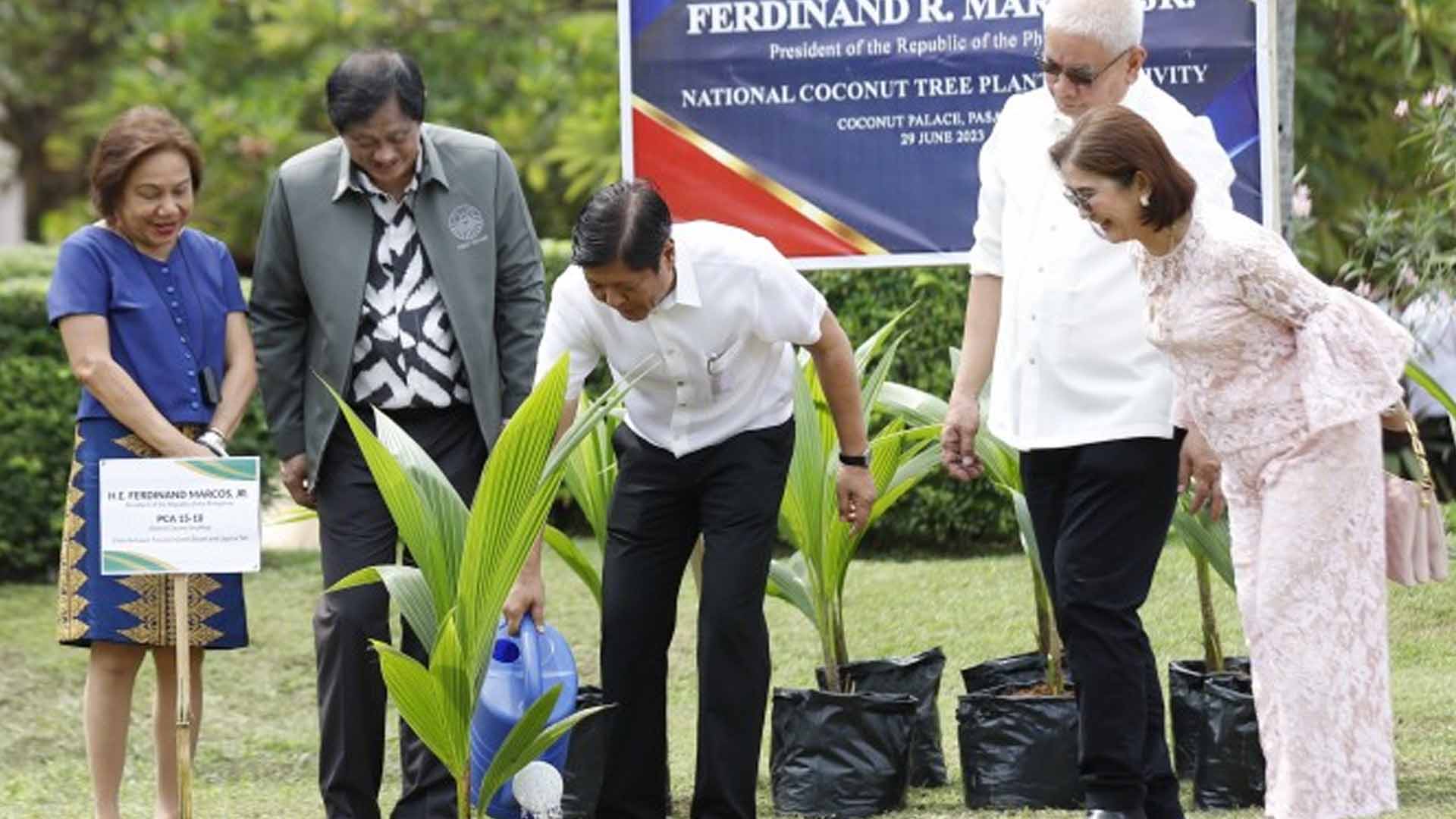President Ferdinand R. Marcos Jr. on Thursday called on the Philippine Coconut Authority (PCA) to step up its modernization efforts and invest in new technologies to ensure the resilience of the coconut sector.
Speaking during the PCA’s 50th anniversary celebration at the Coconut Palace in Pasay City, Marcos said the Philippines, as a major exporter of coconut products, is now in a prime position to harness the advantage of developing the industry for the benefit of the economy and the Filipino people.
Marcos urged the PCA to continue to uplift the lives of the coconut farmers, empower them to improve their conditions and free them from poverty.
“The PCA must intensify the implementation of the Coconut Farmers and Industry Development Plan to accelerate the modernization of the coconut industry and to improve the lives of our coconut farmers and their families,” he said.
“Invest in technologies and initiatives that will not only safeguard but also ensure the resilience of the coconut sector of our agriculture,” Marcos added.
Marcos also instructed the PCA to double its efforts to address the pressing issues besetting the coconut industry, including the effects of climate change, pests and diseases that “remain a significant threat” to coconut trees.
“As we reflect upon the last half-century, we are reminded of the valued history of the PCA, and the challenges that it has withstood to get to where it is today,” he said.
Recognizing coconut trees being a source of Filipinos’ livelihood, Marcos stressed the importance to continue developing and improving coconut products to “find new uses and expand its distribution to new markets.”
Marcos also acknowledged the dedicated and diligent coconut farmers for their tireless efforts to make the coconut sector “stronger.”
“Through their hard work, they are able to plant, take care of, and nourish resilient coconut trees necessary for the emergence of a stronger coconut industry that we may all reap the benefits of this essential product,” he said.
Before delivering a keynote speech, Marcos also participated in the national coconut tree planting activity at the Coconut Palace.
This year’s founding anniversary focuses on the theme, “PCA@50: Honoring the Past, Embracing the Future of the Philippine Coconut Industry,” highlighting the agency’s five-decade accomplishments in terms of empowering and revitalizing the Philippine coconut industry.
The PCA will be holding a weeklong celebration that features various activities, including the ceremonial coconut tree planting led by Marcos, a photo exhibition on PCA’s milestones, a bazaar and showcase of coconut products from Filipino farmers.
Established on June 30, 1973 through Presidential Decree No. 232, the PCA is mandated to develop the coconut industry to its maximum potential anchored in a vision of a united, globally competitive and efficient industry.
Among its functions include improving the productivity of coconut farmers, research and development, infrastructure development, post-harvest facilities and development of coconut farmers’ organizations and enterprises.
Coconut production in the country increased by 1.6 percent from 3.20 million metric tons (MMT) in the first quarter of 2022 to 3.26 MMT in the first quarter of 2023.
Davao Region is the top coconut producer in the country, with 487.10 thousand MT or a 15.0-percent share of the total coconut production in the first quarter of 2023. Other top-producing regions were Zamboanga Peninsula with 14.9-percent share and Northern Mindanao with 13.6-percent share.
The Philippines is a major exporter of coconut oil and other products such as copra meal and desiccated coconut, whose exports declined in the first four months of 2023.
The record shows coconut exports declined by more than half from USD1.04 billion in January to April 2022 to USD490.16 million in the same period in 2023.
The global coconut products market was valued at USD20.24 billion in 2022 and is expected to expand at an annual growth rate of 8.4 percent from 2023 to 2030. (PNA)




















